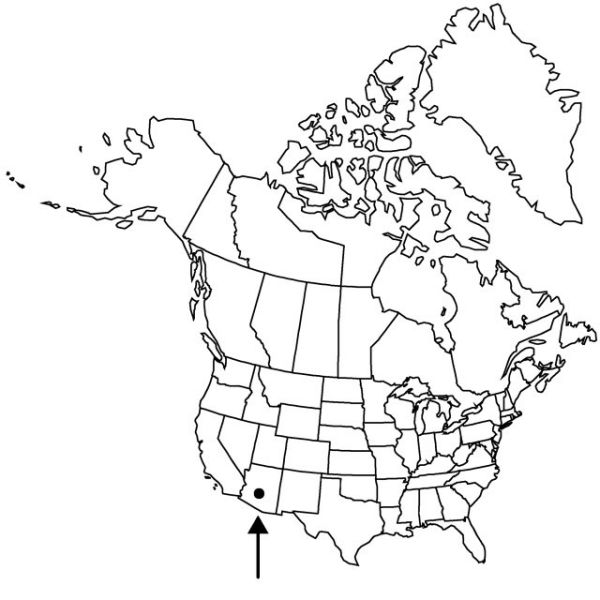Difference between revisions of "Agave ×arizonica"
Cact. Succ. J. (Los Angeles) 42: 223, figs. 1, 2. 1970.
imported>Volume Importer |
imported>Volume Importer |
||
| Line 49: | Line 49: | ||
|publication year=1970 | |publication year=1970 | ||
|special status= | |special status= | ||
| − | |source xml=https:// | + | |source xml=https://bitbucket.org/aafc-mbb/fna-data-curation/src/2e0870ddd59836b60bcf96646a41e87ea5a5943a/coarse_grained_fna_xml/V26/V26_928.xml |
|genus=Agave | |genus=Agave | ||
|species=Agave ×arizonica | |species=Agave ×arizonica | ||
Latest revision as of 21:18, 5 November 2020
Plants acaulescent, sparingly suckering; rosettes solitary or sparingly cespitose, 2–3.5 × 3–4 dm. Leaves spreading, 13–31 × 2–3.2 cm; blade dark green, without bud-prints, linear-lanceolate, rigid, adaxially slightly concave toward apex, abaxially convex toward base; margins straight, non-filiferous, conspicuously armed, horny from below mid-blade to apical spine, teeth single, (1–)2–5 mm, 1–3(–5) cm apart; apical spine dark brown to gray, subulate, 1–2.5 cm. Scape 2.5–4 m. Inflorescences subspicate to racemose-paniculate, openly flowered; bracts caducous, triangular, 8–12 cm; lateral branches 30–40, comprising distal 1/4–1/3 of inflorescence, 4 cm or shorter. Flowers 10–20 per cluster, erect, cylindric-urceolate, 2.5–3.5 cm; perianth pale yellow, sometimes fused with red, tube campanulate, 3.5–7.5 × 8–9 mm, limb lobes not connivent, erect to ascending, subequal, 8–11 mm; stamens long-exserted; filaments inserted 4 mm above base of perianth tube, erect, light yellow, 1.6–3 cm; anthers pale yellow to yellow, 7–11 mm; ovary 0.8–1.5 cm, neck constricted, 4–6 mm. Capsules short-pedicellate, ellipsoid to obovoid, 1.5–2.2 cm, apex beaked. Seeds 3–4.5 mm. 2n = 60.
Phenology: Flowering mid spring–early summer.
Habitat: Rocky slopes in chaparral and juniper-dominated grasslands
Elevation: 900–1800 m
Discussion
as species
Of conservation concern.
Agave ×arizonica is a hybrid population involving A. chrysantha and A. toumeyana var. bella. Only about 60 clones are known.
Selected References
None.
